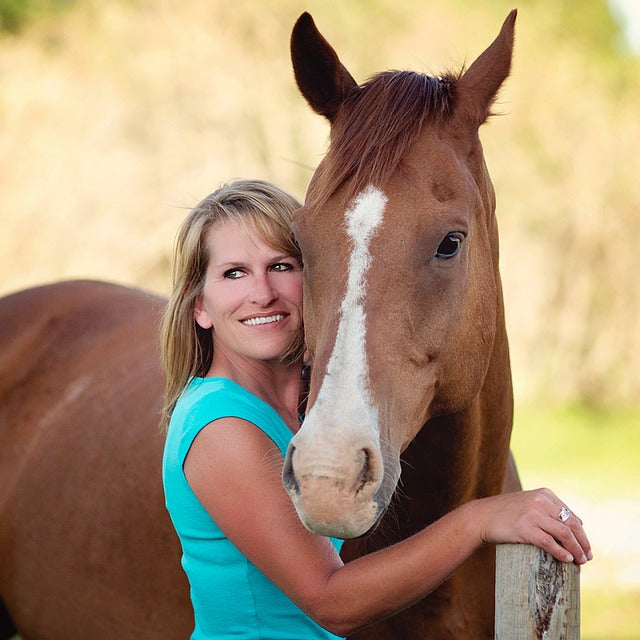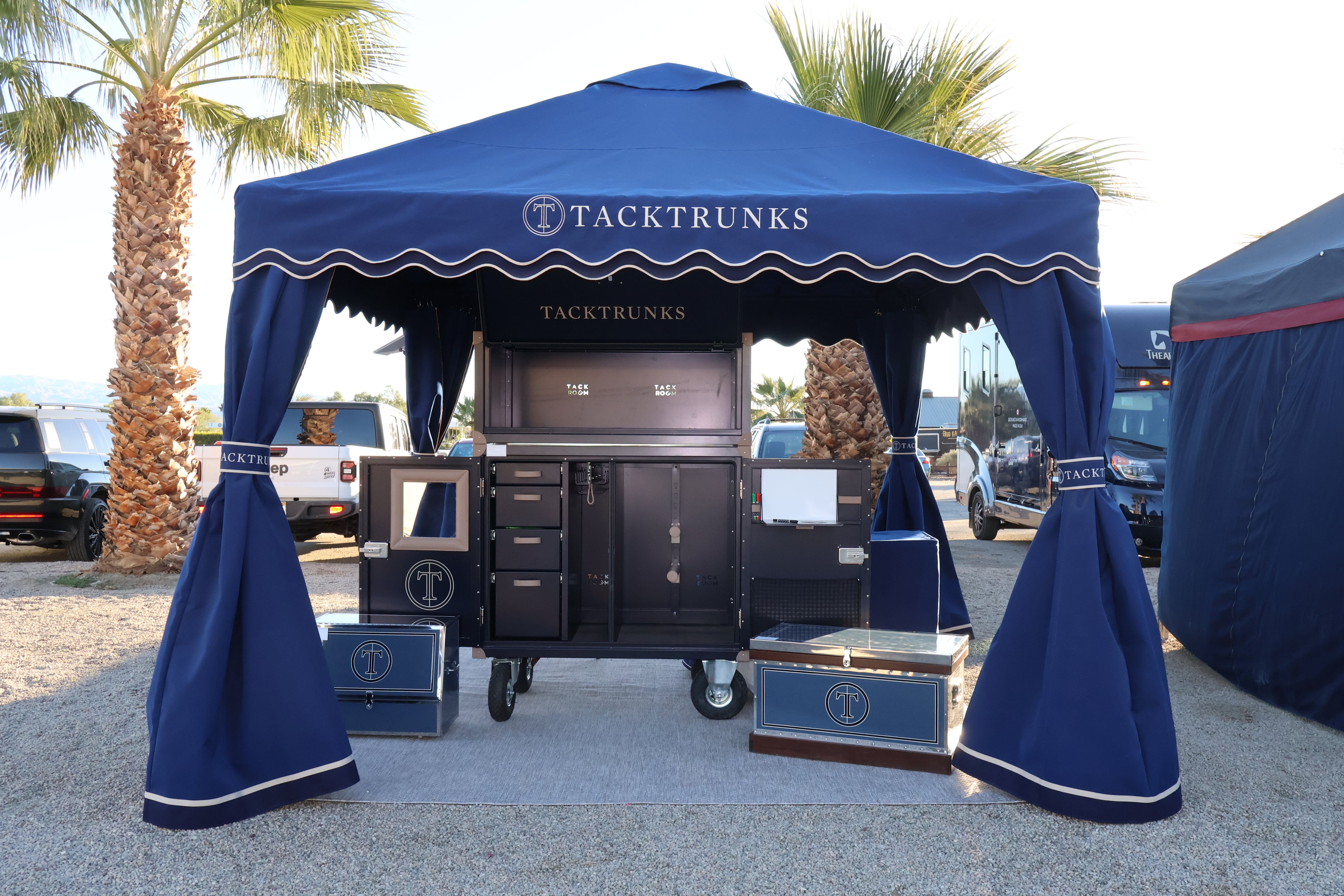
Image credit: Pexels / Pixabay
39 Essentials for Your First Horse
Bringing home your first horse is such a thrilling experience. Whether adopting an older horse or welcoming home a yearling, you’ll want to ensure you have the right supplies to care for your new equine friend. While you’ve undoubtedly considered your saddle, reins, and housing for your horse, there are plenty more items you’ll need to keep your stead comfortable.

Image credit: RebeccasPictures / Pixabay
Feeding Supplies
Providing feeding supplies for your horse may come as common sense, but there’s more to feeding time than just oats and hay.
- Feed Pan – Unlike some livestock and farm animals, horses typically don’t eat from elevated troughs. So instead, you’ll want to feed them from floor level using a feed pan to reduce choking risk.
- Feed Container – You’ll want to invest in a secure feed container that will keep the food clean, dry, and away from other animals and pests – mice are common thieves of horse feed.
- Grazing Muzzle – Note that grazing muzzles aren’t always necessary, but they are helpful to have around. Muzzles prevent horses from overeating and help with weight management without interrupting their natural feeding behavior.
- Water Trough (or Bucket) – You’ll want a clean trough or bucket to provide water, preferably one other animals aren’t using.
- Water Heater (for Cold Climates) – If you live in colder climates with harsh winters, you’ll want a water heater on hand to keep a constant supply for your horses without fear of freezing.

Image credit: sheilovealways / Pixabay
Housing Maintenance Supplies
So, you’ve probably already got a barn or stable set up for the new horse. But, you’ll need a few other items to keep your new friend comfortable.
- Secure Sleeping Space – Ensure your barn or stable has a gate or locking door to keep your horse safe.
- Secure Food Storage Space – Indoor food storage space is critical for keeping food dry and in good condition for your horse. A storage shed will do if you don’t have room in the stable.
- Stable Broom – A clean stable makes for a happy horse. Get a decent stable broom to make cleaning less of a chore.
- Pitchfork – Yes, you will need a pitchfork to do the dirty work and take care of all that manure.
- Wheelbarrow – Make your life easier by having a pitchfork to move all that manure out of the barn.
- Fire Extinguisher – Though not common, barn fires do happen. Keep a fire extinguisher in the barn and around any feed storage for safety purposes.
- Light Source – Not all barns or stables have electricity. If yours does, great. Otherwise, keep a few battery-operated or solar-operated lanterns around.
- Extra Lightbulbs/Batteries – Keep extra batteries and lightbulbs on hand for the light sources in your horse’s housing areas.

Image credit: Alexas_Fotos / Pixabay
Grooming Supplies
Keeping your horse happy and healthy will require regular grooming care. Grooming a horse is not complicated but needs a few more tools than a brush.
- Lead Ropes – Having your horse on a lead rope will make guiding them through grooming easier.
- Equine Shampoo/Conditioner – It’s critical to purchase equine-specific shampoo and conditioner. Human and animal products won’t work well for your horse’s mane and skin. Look for products that are free of phthalates, parabens, and alcohol.
- Curry Comb – The first comb you’ll use to tidy up your horse is the curry comb. Curry combs loosen dirt and other debris.
- Body Brush – A body brush removes dust and dirt while shining up your horse’s coat.
- Mane and Tail Combs – Mane and tail combs remove tangles and snags from a horse’s tail and mane.
- Hoof Picks – You’ll want a few hoof picks on hand to get rocks, mud, and other debris out from your horse’s hooves.
- Blankets – Stock up on a few horse blankets for cold nights.
- Sweat Sheets – Sweat sheets help keep sweaty horses dry. Using them during hot weather can keep your horse more comfortable and less likely to roll around on the ground – thus, reducing the number of hours spend grooming them.
- Sweat Scrubber – A sweat scrubber is an excellent companion to sweat sheets—the tool “scrubs” at sweat, removing excess sweat from your horse’s coat.

Image credit: Peggy_Marco / Pixabay
Emergency Care Supplies
You must keep a set of emergency care supplies in your horse’s travel kit and stable.
- Veterinarian Contact List – You may have a favorite or preferred veterinarian that takes care of your horse. Still, it’s wise to have a list of other nearby veterinarians in case of emergencies. Keep the list posted someplace easily visible. Also, if you have any trips planned, list vets along the route.
- Equine First Aid Kit – Purchase and keep an Equine First Aid Kit in the barn and your horse’s travel kit. Look for First Aid Kits certified by veterinarians.

Image credit: JACLOU-DL / Pixabay
Riding Supplies
New horse owners are always excited to ride for the first time. However, before you can ride, you’ll need several pieces of gear and equipment.
- Helmet – Falling from a horse can lead to severe injury. Concussions are a common horse riding injury, but wearing a helmet can prevent them or reduce their severity, as well as other significant injuries.
- Saddle – You’ll want a saddle for your horse. Bareback riding is an acquired skill, and saddles are by far the more comfortable option.
- Saddle Pad – Saddle pads provide extra cushion for you and the horse. They also reduce any irritation from the saddle.
- Bridle and Bite – You’ll need a bridle and bit to steer and control your horse.
- Stirrups and Stirrup Leathers – Stirrups help you mount your horse and improve your balance on the horse.
- Leg Protection (for Horses) – A horse’s legs are delicate. Leg protection like wraps and boots designed for horses can prevent injury to their legs.
- Riding Boots (for You) – Riding boots protect your feet from being pinched by the saddle and are explicitly designed to fit in stirrups.
- Safety Vest – A safety vest will protect your spine and internal organs in case you fall from the horse.

Image credit: Pezibear / Pixabay
Transportation Supplies
Transporting your horse is a new ballgame and requires more work than transporting smaller animals.
- Towing Vehicle – You’ll need an appropriate vehicle for transporting your horse – a truck or SUV are popular options.
- Tow Trailer – Your horse will need a towing trailer to travel in.
- Legal Documentation – When traveling, keep your legal documentation detailing your ownership of the horse on hand.
- Medical Documentation – Keep a record of your horse’s shots and medical conditions on hand when traveling.
- Rubber Matting and Bedding Material – You’ll want to line your horse’s travel trailer with rubber matting for traction to prevent falls and bedding to absorb any bodily fluids and keep your horse comfortable during the trip.
- Travel Clothing – Gearing your horse up for a trip with a breakaway head collar and poll, tail, and leg guards will prevent injury to your horse. Additionally, blankets and wraps can keep your horse warm and add to its protection.
- Lead Rope with Halter – Most horses don’t like loading into trailers, but they eventually get used to it. You’ll want to use a lead rope and halter to guide your horse in and out of the trailer.
While planning the arrival of a new horse, you’ll want to gather enough supplies to transition your horse to its new home successfully. Gathering feeding supplies, housing and maintenance tools, grooming materials, and the other supplies previously listed will set you up for a happy, healthy horse.


